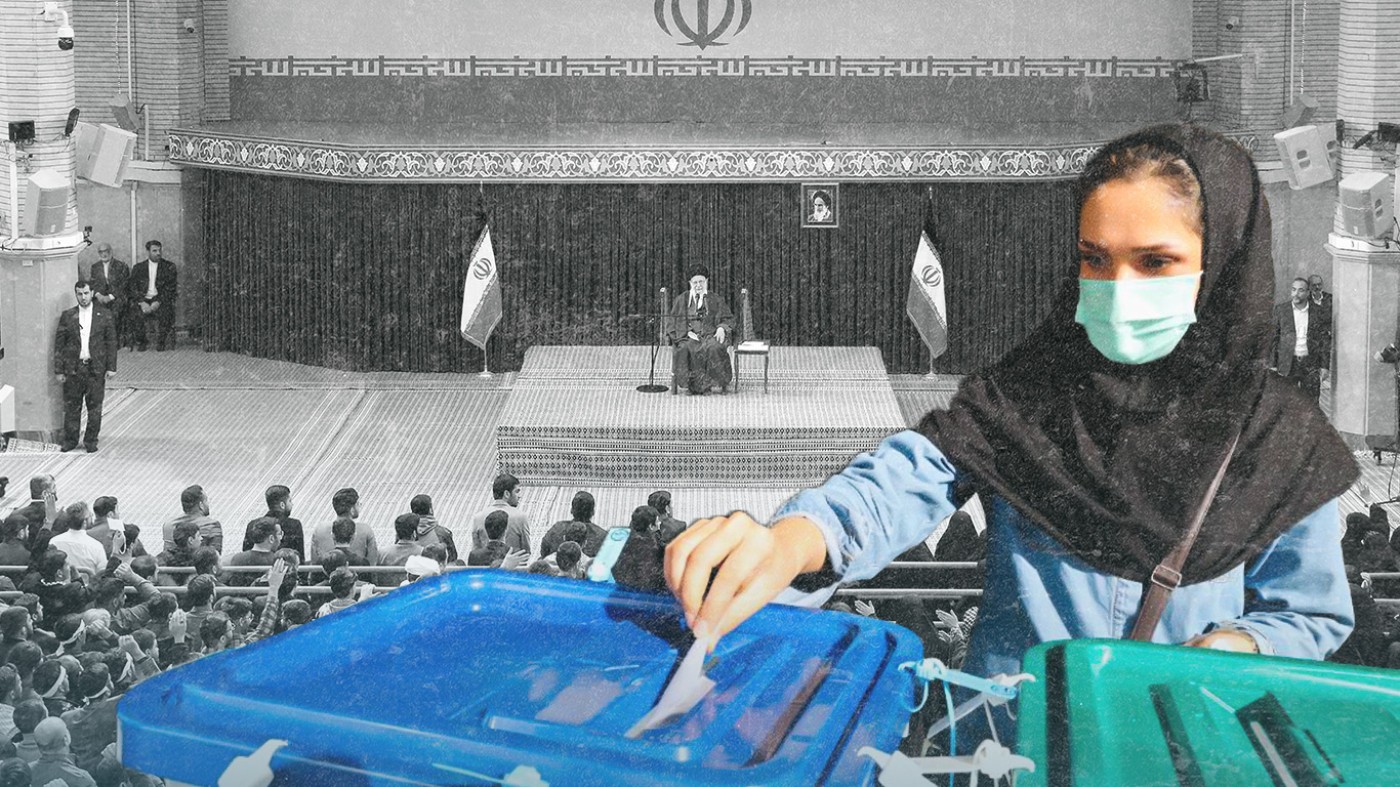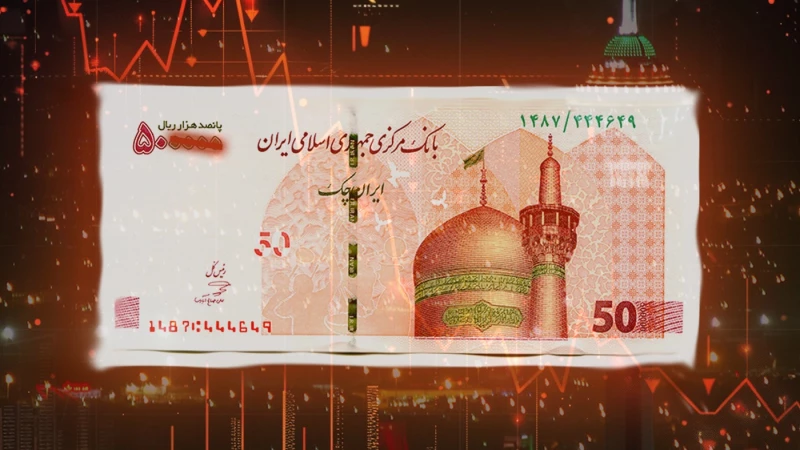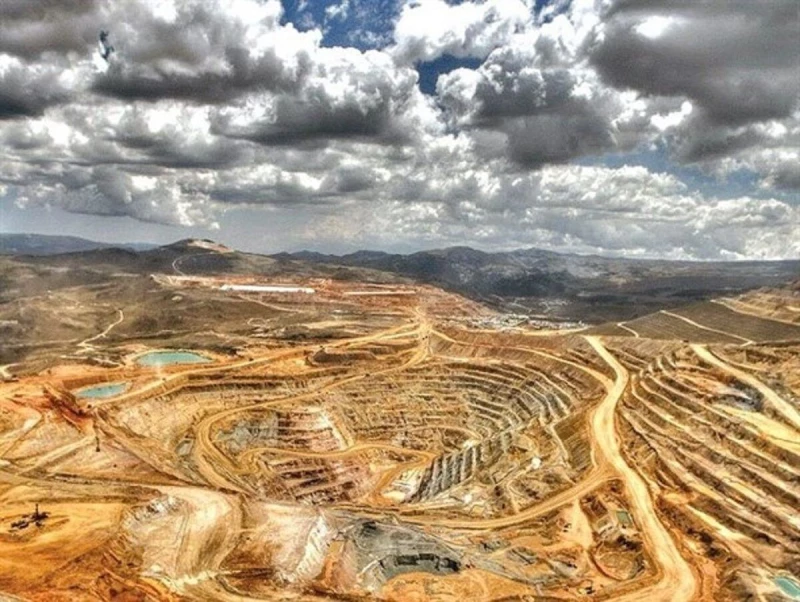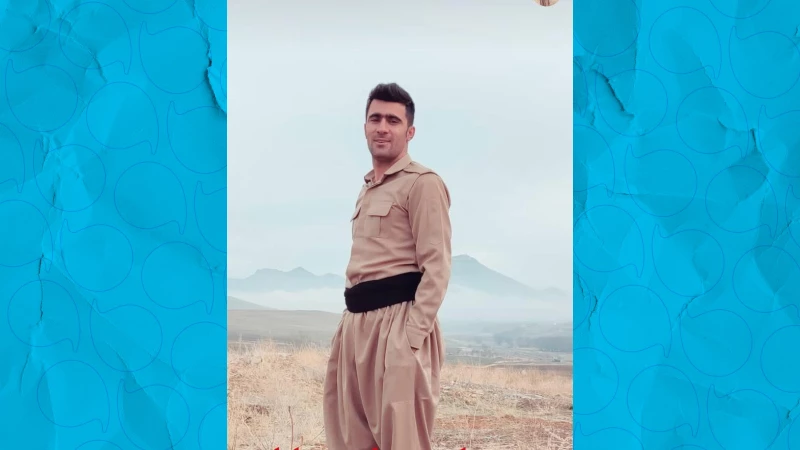Kaveh Ahmedi* is among many who are in a hard financial situation in Iran, but despite hardships, he refused to turn his store into a hub for electoral campaigns even when offered large amounts of money.
He cannot get himself to forget the sight of a close friend of his who was brutally shot dead by security forces in front of his store during the nationwide protests that engulfed the country in 2022.
For that reason, when several candidates offered him money to turn his store into an election campaign spot, he would remember his friend’s blood covered body and his promise to never participate in any other elections.
Iran’s 12th parliamentary election and Assembly of Experts elections are set to start on Friday. This comes as nearly a year and a half passes over the Fall 2022 protests, when thousands across the country took to the streets following the death of Zhina (Mahsa) Amini in police custody after she was arrested by Tehran’s morality police for not properly wearing the hijab.
The protests went on for months, during which over 600 people were killed and thousands were wounded and arrested by the regime’s security forces.
The electoral vibe in Iran is now cold and the increased will to boycott the polling stations can be sensed in many parts of the country.
Those rooting against the regime believe that not only the elections will not change anything about their lives like years before and poverty will continue, but also through boycotting the polls they would be responding to the regime’s oppressive brutal and oppressive treatment of protestors.
This situation is more apparent in Kurdish provinces in the west of the country, most notably Kurdistan, Kermanshah, Ilam, and West Azerbaijan provinces, which were the center of the “Women,life, freedom” movement.
Kaveh, who is 38 years old and lives in the city of Divandarreh, a small city in Kurdistan province which witnessed heavy clashes between people and security forces resulting in the death of six civilians, among them Kaveh’s friend.
Despite struggling financially, he refused to use his store as a means for electoral campaigns.
“Before Zhina’s revolution I used to think differently,” he told The New Region on Thursday. “But after I saw with my own eyes my close friend who was unarmed and had only participated in the protests being shot dead by security forces, I lost faith in all government statements and have decided to not participate in any election.”
Kaveh has chosen to maintain his stance despite being offered large amounts of money, the one thing that could turn his life around.
“I am now in a very rough financial state and I need money, but these days when people were campaigning, I was offered by many candidates to give them my store as a campaign spot in return for a year’s worth of rent,” he said with a heavy heart.
“But when I remember the way my friend’s blood was shed, I am embarrassed to sell my soul for money,” he added.
According to Kaveh, several storekeepers in his city have refused such offers and those who have accepted to do campaigning are doing so under a veil, “so people would not recognize them.”
Saro Mamzadeh* is a 33 year old civil activist from Mahabad in West Azerbaijan province, he was among many who were arrested for their work during the protests.
“What I am seeing right now is unlike anything I have seen before,” he told The New Region on Thursday regarding the people’s will to boycott elections.
“Right now, even in the villages, people no longer get convinced by food rations such as rice, oil, and meat, and most of the people are angry about the oppression of the youth in the protests and the deteriorating financial state,” he added. “I believe this will be the coldest election in the past years, especially in Kurdish provinces.”
Only 23 percent of Tehran might vote
The events of Fall 2022 have affected the electoral environment in a way that it has become hard to not witness its impact in any event or gathering.
The rejection of several parliamentary and Assembly of Experts candidates, which included former Iranian President Hassan Rouhani, has led to even more hopelessness towards the electoral process, leading experts to believe that the boycott rate will be unprecedented.
According to the latest polls by the Iranian Students Polling Agency (ISPA) on Wednesday, only 41 percent of Iran’s people are planning to partake in the elections, with only a 23 percent expected turnout rate in the capital Tehran.
The Agency that took around 5000 people from across the country as a sample for this poll, added that in two earlier polls in the end of 2023 and beginning of 2024, the expected turnouts were 27 and 28 percent respectively.
Ako* is a 26 year old youth from the city of Javanrud in Kermanshah province, a city that witnessed some of the heaviest clashes between protestors and security forces. At least seven people were killed in the city by security forces, and dozens more were wounded.
Posting a picture of his late brother on Instagram, who died while working as a kolbar two years ago, Ako has written “I will neither forget, nor forgive”.
Poverty in Iran has led many in mainly Kurdish provinces to resort to working as kokbars. Kolbars transport untaxed goods through Iran’s borders on foot through harsh landscapes and weathers. Iranian border guards have made a habit of targeting kolbars.
“The reason why people are not participating in the elections is not just the suppression of the protests, but also the terrible financial situation the people are in which gets worse by the day,” he told The New Region on Thursday.
According to Ako, the rough economic situation has led many youth to consider migration.
“Inflation and poverty are increasing everyday, the youth do not see any future, many of them are thinking of traveling to Europe through smuggling routes,” he said. “In our area, people have no other choice but to risk their lives and work as kolbars, so tell me who would vote in such circumstances."
*Names have been changed to protect their identity



 Facebook
Facebook
 LinkedIn
LinkedIn
 Telegram
Telegram
 X
X


